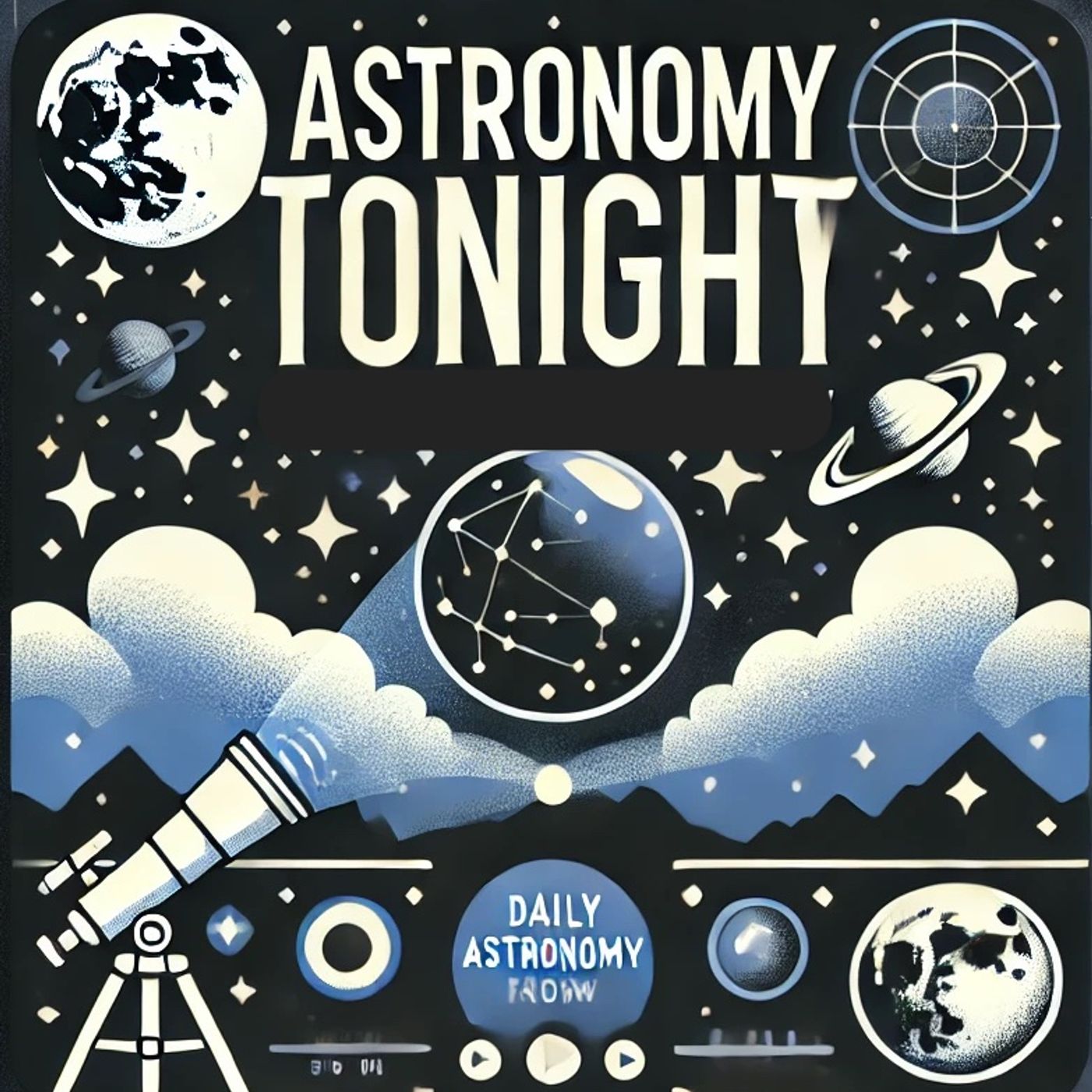Episode Details
Back to Episodes
"Kepler's Cosmic Fireworks: A Supernova Spectacular"
Published 4 months, 2 weeks ago
Description
This is your Astronomy Tonight podcast.
On October 9th, 1604, something extraordinary happened in the night sky that would forever change our understanding of the cosmos. On this date, a supernova exploded in the constellation Ophiuchus, becoming visible to the naked eye and outshining every star in the sky. This cosmic fireworks display was observed and meticulously documented by the famous astronomer Johannes Kepler, earning it the name "Kepler's Supernova."
Imagine the awe and wonder of people across Europe and Asia as they gazed up at the night sky to see this new, blindingly bright star appear out of nowhere. It was so bright that it could be seen during the day for over three weeks! This celestial spectacle lasted for about 18 months before fading from view, but its impact on astronomy was permanent.
Kepler's Supernova, also known as SN 1604, was the last supernova observed in our Milky Way galaxy that was visible to the naked eye. It occurred at a pivotal time in the history of astronomy, just as the telescope was being invented. This timing allowed for more detailed observations than any previous supernova, providing valuable data that helped shape our understanding of stellar evolution and the nature of the universe.
The remnants of this cosmic explosion are still visible today through powerful telescopes. The expanding shell of gas and dust continues to race outward at incredible speeds, serving as a cosmic time capsule that astronomers can study to learn more about the nature of supernovae and the elements they produce.
Kepler's meticulous observations of this supernova played a crucial role in overturning the long-held belief that the heavens were unchanging and perfect. It helped pave the way for a new era of astronomy, where change and evolution became central to our understanding of the cosmos.
So, the next time you look up at the night sky on October 9th, take a moment to imagine the awe-inspiring sight that greeted our ancestors on this date in 1604. Who knows what cosmic wonders await discovery in our own time?
Don't forget to subscribe to the Astronomy Tonight podcast for more fascinating stories from the cosmos. If you want more info, check out QuietPlease.AI. Thank you for listening to another Quiet Please Production.
This content was created in partnership and with the help of Artificial Intelligence AI
On October 9th, 1604, something extraordinary happened in the night sky that would forever change our understanding of the cosmos. On this date, a supernova exploded in the constellation Ophiuchus, becoming visible to the naked eye and outshining every star in the sky. This cosmic fireworks display was observed and meticulously documented by the famous astronomer Johannes Kepler, earning it the name "Kepler's Supernova."
Imagine the awe and wonder of people across Europe and Asia as they gazed up at the night sky to see this new, blindingly bright star appear out of nowhere. It was so bright that it could be seen during the day for over three weeks! This celestial spectacle lasted for about 18 months before fading from view, but its impact on astronomy was permanent.
Kepler's Supernova, also known as SN 1604, was the last supernova observed in our Milky Way galaxy that was visible to the naked eye. It occurred at a pivotal time in the history of astronomy, just as the telescope was being invented. This timing allowed for more detailed observations than any previous supernova, providing valuable data that helped shape our understanding of stellar evolution and the nature of the universe.
The remnants of this cosmic explosion are still visible today through powerful telescopes. The expanding shell of gas and dust continues to race outward at incredible speeds, serving as a cosmic time capsule that astronomers can study to learn more about the nature of supernovae and the elements they produce.
Kepler's meticulous observations of this supernova played a crucial role in overturning the long-held belief that the heavens were unchanging and perfect. It helped pave the way for a new era of astronomy, where change and evolution became central to our understanding of the cosmos.
So, the next time you look up at the night sky on October 9th, take a moment to imagine the awe-inspiring sight that greeted our ancestors on this date in 1604. Who knows what cosmic wonders await discovery in our own time?
Don't forget to subscribe to the Astronomy Tonight podcast for more fascinating stories from the cosmos. If you want more info, check out QuietPlease.AI. Thank you for listening to another Quiet Please Production.
This content was created in partnership and with the help of Artificial Intelligence AI